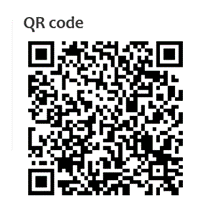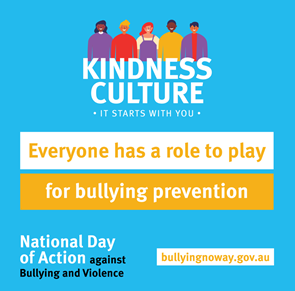GECPA News

GECPA Term 1
“With the right mindset, we can’t lose, we either practice what we’ve learned or we learn what we need to practice.” Noura.
Different perspective, different opinions and differences, in all its forms, are what broadens how we view ourselves and our community. We are so fortunate at Glen Eira College to have diversity and this is reflected in your parent’s association.
We are so proud to be part of your Parents Association. We encourage all parents and carers to join. Become a member. What is on your mind? What matters to you?
There are a number of options for you to get involved:
- Become a member of GECPA. We look forward to meeting you.
- Join any of our Committee Meetings. Your input is welcome.
- Reach out and tell us what matters to you during your time as part of the GEC community. After all, this is your parents’ association.
We also aim to communicate regularly with parents and carers at GEC. Email is still the easiest way for you to find out what is happening at the College. To join the mailing list, scan the QR code below:
For more information about our monthly Working Bee, Uniform stall, Ride to School Day and Walking and Cycling Safety, among others - look out for the email or any of the above - please contact us at: gecpa@gec.vic.edu.au
Nicole Bishop
Convenor, Glen Eira College Parents Association
Some Tips and Tricks
Year 8 parents and carers: Year 8 is an opportunity to consolidate knowledge and further develop critical thinking skills. It’s a non-NAPLAN year so this is the opportunity to build on existing skills.
- In Year 8 Maths, students consolidate their algebraic skills. The curriculum also covers financial mathematics, ratios and rates, linear and non-linear relationships, data, circles and cylinders and properties of geometrical figures.
- The Year 8 English curriculum involves a huge range of texts - novels and newspapers, poems and plays, digital media and dreamtime stories. But grammar and spelling are still crucial.
- Time management skills are still important but at this stage it’s also about time to think about how tasks are prioritised. This link is more adult-focused but it’s simple – which I like: How to prioritise tasks and make an effective to-do list | Michael Page
Year 9 tips and trick in the next issue.
National Day of Action against Bullying and Violence: Friday 18 March
To download this toolkit: https://bit.ly/3hBUmT7 or go to the website: https://bit.ly/3Klj9qy for more information.
Supporting students with disabilities and learning difficulties
Information about how your child can access support is available on the Department of Education’s website as well as Association for Children with a Disability . Other useful resources can be found at dyscalculia, dyslexia and dyspraxia and SPELD websites. Also, you can participate in research looking at how the COVID-19 pandemic has affected the mental health and wellbeing of women with disability via this survey.
If you want to talk a few kind GECPA parents and carers have offered to share support and their experiences. A confidential chat which can be arranged as a meeting in a local park. Email gecpa@gec.vic.edu.au.
How to alleviate fear and worry in our kids
With everything going on in the world today, anxiety and depression has escalated. Our teens are in a space of rapid physical, mental, social growth and change. These changes create stress, making it reasonable for them to worry. Anxiety in children is normal, particularly at times like this when there is so much change in the world. According to Beyond Blue, it’s normal for children to show some anxieties, fears and worries but these come and go throughout childhood. They worry about different things, they may worry about friendships, family relationships, think about war, have economic and political fears, and so on.
Our kids are going through the most awkward stage of their lives. They are experiencing hormonal imbalances, puberty, social, parental and school pressures, and they are expected to cope.
It is crucial that we as parents affirm and validate their feelings and emotions, and reach out when they are struggling and worrying about things. Worry and fear are different forms of anxiety. Fear usually happens in the present and worry may happen about the past or the future.
Types of anxieties
Social anxieties:
Our kids may display social anxieties, where there is a worry or fear when they need to interact with others. They may be shy, withdrawn and not want to be the focus of attention. They may be fearful that others will laugh or judge them.
Generalised anxieties:
Children with generalised anxiety tend to worry about many areas of life like friends, health, schoolwork, school, sporting achievements, money, safety, world events and so on. They may need constant reassurance, feel sick when worried, feel scared of asking or answering questions in class.
How to support your child with anxiety
When your child is showing normal childhood anxieties you should acknowledge your child’s fears, don’t ignore it or dismiss it. Gently encourage your child to face those fears but don’t push them. Praise your child for doing something that they are fearful or anxious about, don’t criticize them.
When to seek professional help
If any of the below are showing up for them, or you feel concerned or worried about your child’s anxieties, please seek professional help.
- When the anxieties impact their daily lives or stops them from doing the things they want to do.
- When your child’s behaviour is so different from their peers, and they show extreme distress.
- Or their reactions to situations are unusually severe.
Anxiety is manageable, so the sooner people with anxiety get support, the more likely they are to recover.
Programs for teenagers and parents.
The BRAVE Program is also a useful resource.
https://brave4you.psy.uq.edu.au/
Catherine McNaughton
Editor, GECPA Newsletter
Contributions: Tessa Spanneberg, Nicole Bishop



